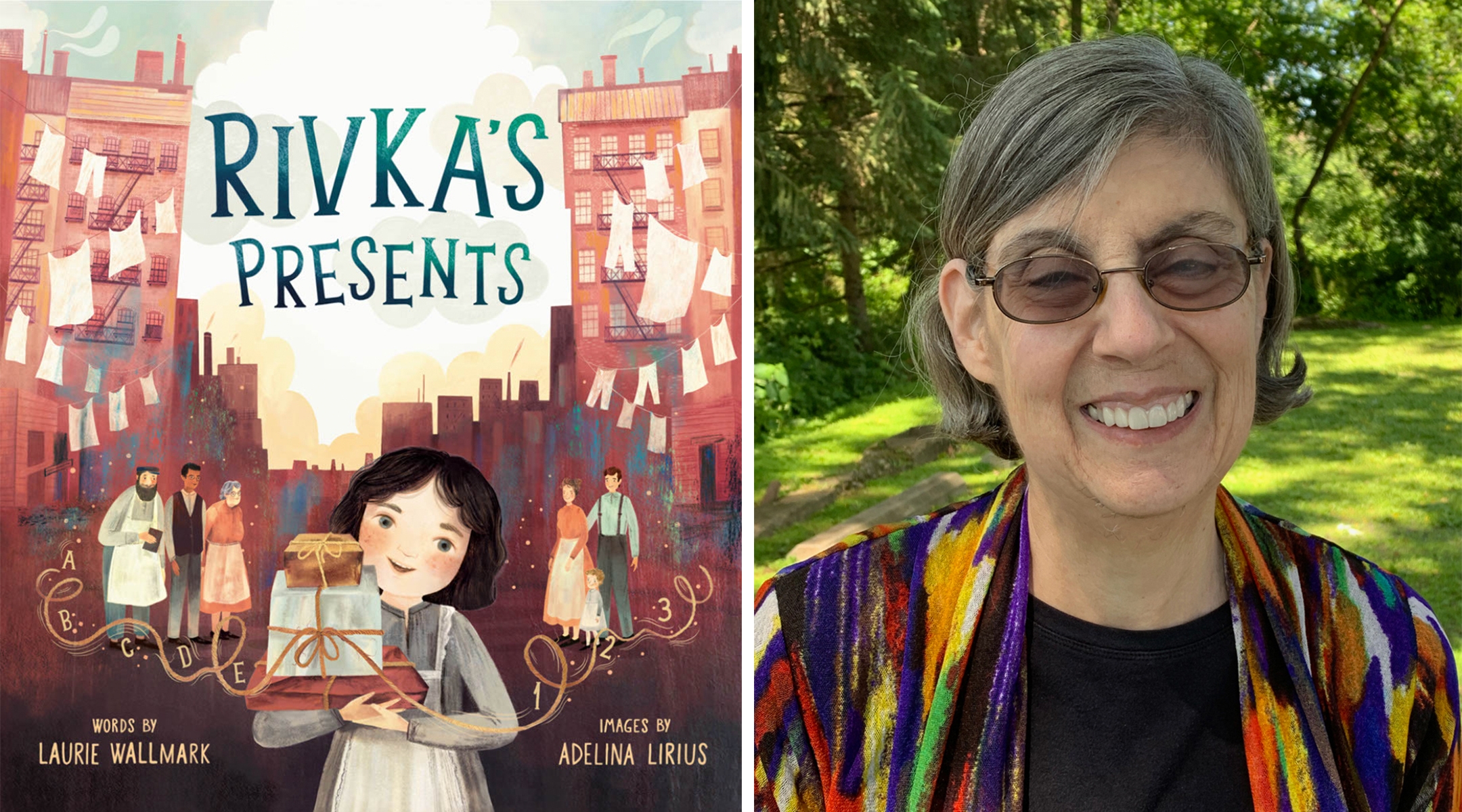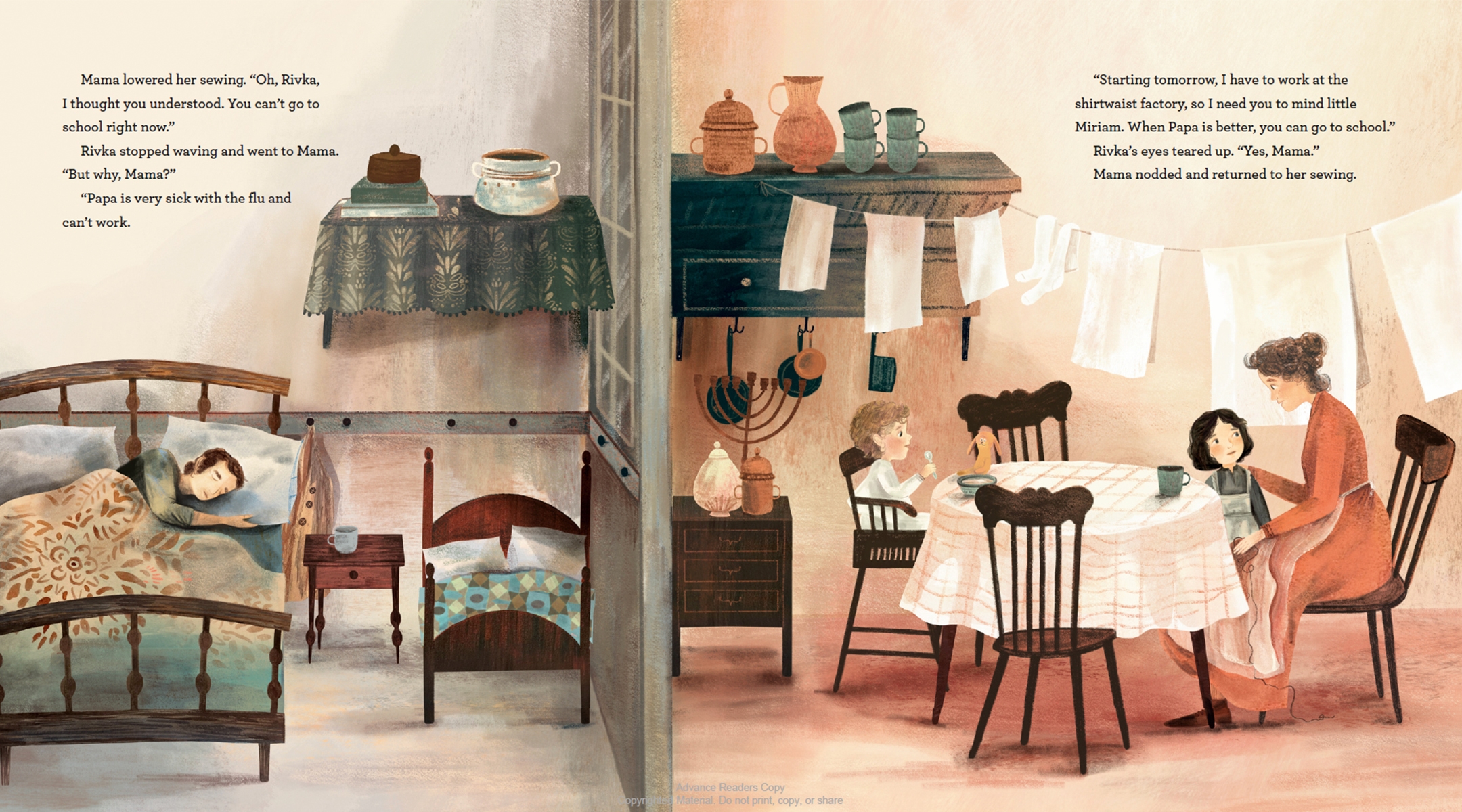(New York Jewish Week) — A new picture book set on the Lower East Side during the flu pandemic of 1918 is ostensibly about the values of education and community.
But “Rivka’s Presents” was not created in response to the COVID-19 pandemic, as you might expect. Instead, it was written 15 years ago, after author Laurie Wallmark made a visit to the Lower East Side’s Tenement Museum, a living history museum that highlights how immigrants lived in the neighborhood in the 19th and 20th centuries.
Wallmark first visited the museum around 18 years ago. At the time, she thought, “Someone would write a book about people who lived in these tenements,” Wallmark told the New York Jewish Week. When she returned a few years later for another tour, she had the same thought. This time, Wallmark decided to write the book herself.
Wallmark, who was working as a computer programmer at the time, thought “Rivka’s Presents” would be her first book. But life had other plans. After numerous publishers rejected the book, Wallmark went on to publish six biographies for children about women in STEM, including mathematician Grace Hopper and codebreaker Elizebeth Friedman, and a bedtime book, “Dino Pajama Party.”
And then, in 2021, Wallmark received a call from her agent saying that Random House wanted to publish “Rivka’s Presents.” The book, with illustrations by Adelina Lirius, was released on July 11.
“People always have a book of their heart,” Wallmark said. “This one was the book of my heart.”
The protagonist of the 40-page book, Rivka, is a young girl growing up on the Lower East Side. She is elated to start school — but when her father gets very sick from the flu and her mother has to work in a shirtwaist factory, Rivka must take care of her younger sister, Miriam. Despite the setback, Rivka is determined to learn, so she ventures out with her sister and offers to do chores for the tailor, the grocer and an elderly neighbor in return for lessons in reading and writing, math and American history.
Being a children’s book, there is a happy ending: Rivka’s neighbors surprise her with gifts to celebrate her love of learning. And, even better, her father recovers and she is able to start school.

“Rivka’s Presents” is Laurie Wallmark’s eighth picture book. (Images courtesy of Laurie Wallmark)
The book is a very personal one for Wallmark, whose grandparents all grew up on the Lower East Side around the same time that the book takes place. “I always heard stories about growing up there,” she said.
The characters, Wallmark said, are inspired by her family members: Wallmark’s grandmother worked in the infamous Triangle Shirtwaist Factory, and served as inspiration for Rivka’s mother. Rivka’s excitement for learning, meanwhile, was inspired by Wallmark’s mother. The sprinkle of Yiddish words throughout the book — like bubbeleh (darling) and shayna maideleh (beautiful little girl) — is in honor of one of her grandfathers, who never learned English.
“Of course, whenever my parents did not want me to know what they were saying they would speak Yiddish,” Wallmark said, echoing a common refrain.
Other than the occasional Yiddish words, however, “Rivka’s Presents” is not explicitly Jewish in content — and that’s by design. “Where are the books where there’s a little kid who happens to be Jewish? Maybe [he] isn’t even the main character, but he’s wearing a kippah?” Wallmark said. “We also want diversity and inclusion [in children’s books] to include little Jewish boys and girls.”
An obvious value in “Rivka’s Presents” is education, and Wallmark says the story is ideal for children who might be afraid or not excited about attending school. “Here, they see this little girl who can’t wait to start school and can’t wait to learn,” Wallmark said. “[Readers] see that learning can be fun, can be something you want to do, not something you just have to do.”
“Rivka’s Presents” is a social and emotional learning book, which Wallmark credits as one reason why it was published now. These types of books that “help kids understand and cope with the challenges of living in today’s world” are in increasing demand, she explained.
Wallmark hopes that “Rivka’s Presents,” like her other books, will “inspire curiosity, help kids learn about the world around them, and enjoy different aspects of the world.”
The New York Jewish Week brings you the stories behind the headlines, keeping you connected to Jewish life in New York. Help sustain the reporting you trust by donating today.





